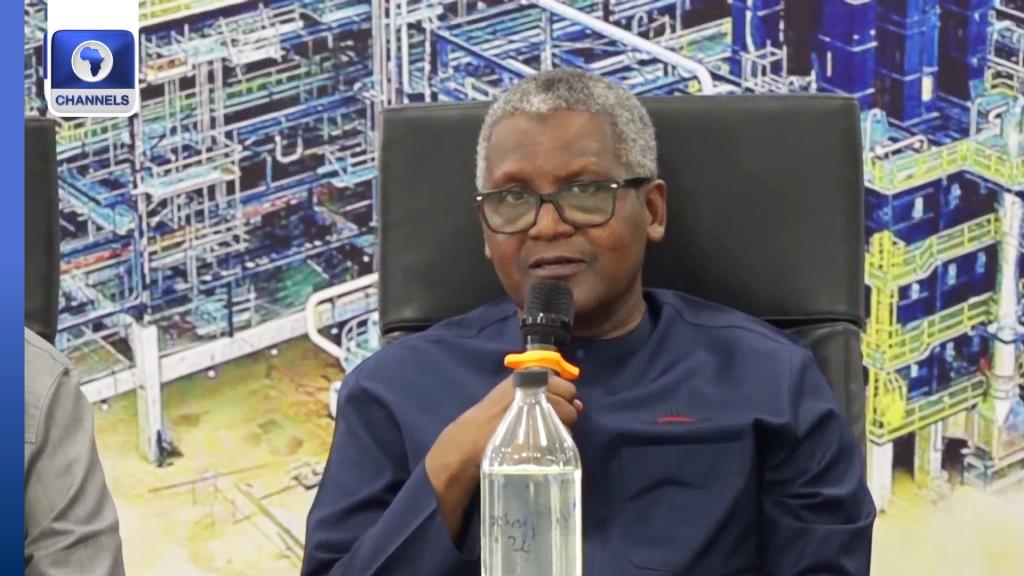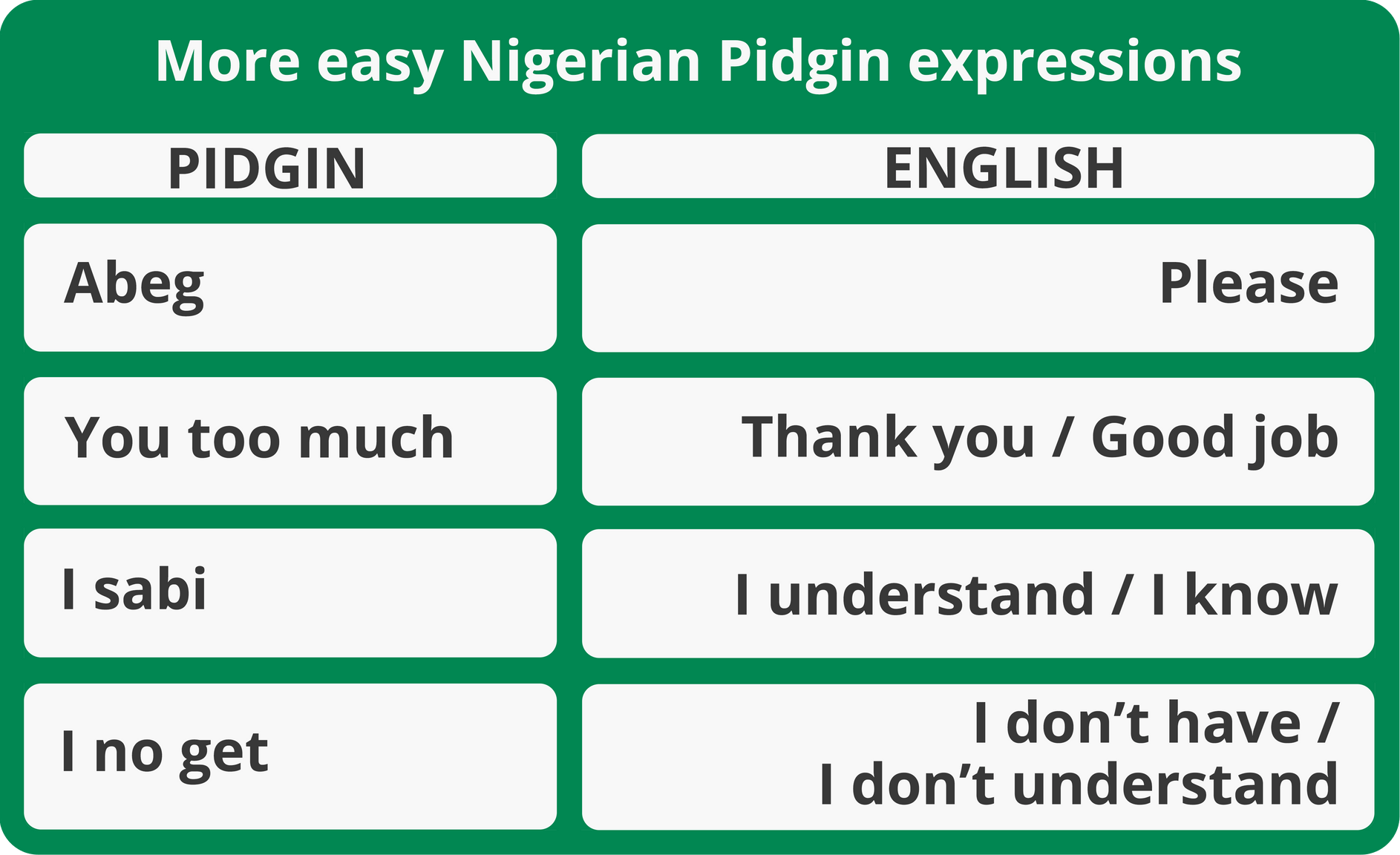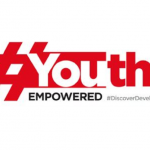Economy
NSE to List Shares on NGX by Introduction

By Dipo Olowookere
Members of the public can now become a part-owner of the Nigerian Stock Exchange (NSE) following the approval given to the exchange to list its shares by introduction.
The authorisation was given on Wednesday during the 59th Annual General Meeting (AGM) of the local bourse held in Lagos.
At the gathering, which is expected to be its last as a mutual entity, members of the NSE voted overwhelmingly to support the listing of the Nigerian Exchange Group Plc (NGXG) on the Nigerian Exchange Limited (NGX) once the demutualization of the NSE is completed.
NGX is the new exchange to be established after the collapse of the NSE as a result of the demutualisation as the organisation’s equities will no longer be wholly owned by its dealing and non-dealing members.
The new structure and the listing of NGXG will enable the exchange to realise its vision of becoming Africa’s leading exchange hub. The NGXG Plc will be expected to realize all the benefits of demutualization for its stakeholders and the capital market at large.
“We would like to thank the membership of the exchange for their overwhelming support of the listing plans.
“This marks the beginning of the exchange’s transformation into a listed company with the flexibility to raise additional equity and/ or debt capital,” Mr Oscar Onyema, the CEO of the NSE and the Group CEO of NGXG Plc designate, stated.
He said further that, “It is our aim that under this new structure, the Nigerian capital markets will be able to play a role that is commensurate with Nigeria’s status as Africa’s biggest economy.
“We believe we can become a financial hub for Africa and with the backing of our stakeholders and their continued use of our services this objective can become a reality,” he added.
On his part, Mr Abimbola Ogunbanjo, President of the National Council of the NSE, who was re-elected at the AGM yesterday, stated that, “The exchange has made significant progress in pursuing its strategic development through listing and other steps.”
Economy
Dangote Refinery Drop PMS Ex-Depot Price by N30 to N820 Per Litre

By Modupe Gbadeyanka
The ex-depot price of premium motor spirit (PMS), commonly called petrol, has been reduced by Dangote Petroleum Refinery by N30.
In a statement on Tuesday, the Chief Branding and Communications Officer of Dangote Group, Mr Anthony Chiejina, said the product would now be sold to marketers at N820 per litre and not the former price of N850 per litre.
It was stated that the price reduction is effective Tuesday, August 12, 2025, and it is “part of our unwavering commitment to national development,” assuring “the public of a consistent and uninterrupted supply of petroleum products.”
“In line with our dedication to operational excellence and sustainable energy solutions, Dangote Petroleum Refinery will commence the phased deployment of 4,000 Compressed Natural Gas (CNG)-powered trucks for fuel distribution across Nigeria, effective August 15, 2025,” a part of the terse statement disclosed.
Economy
CSCS Simplifies Capital Market Transactions With *7270# USSD Code

By Aduragbemi Omiyale
In demonstration of its commitment to deepening the Nigerian capital market and making investment in the ecosystem seamless and more attractive, the Central Securities Clearing System (CSCS) Plc introduced its Unstructured Supplementary Service Data (USSD) code service.
The quick code, Business Post gathered, is also part of the innovations the company is deploying to boost market accessibility and make capital market access easier, faster, and more inclusive.
The USSD code service is *7270# and can be used by investors to view their investments on the go even without data on feature phones.
The *7270# USSD code service was developed by CSCS in collaboration with MTN Nigeria, the leading telecommunications firm in the country.
CSCS disclosed that with this simple code, investors can now retrieve vital information about their holdings and recent transactions directly from their mobile phones, and no internet access is required.
This is particularly significant for investors in underserved and remote areas and without access to smartphones or stable internet connections, it noted.
“The USSD service supports our broader mission to enhance financial inclusion by ensuring that every investor, regardless of location or digital literacy, can stay updated on their investments.
“It also reinforces our strategic focus on using technology to improve transparency, efficiency, and user experience across the Nigerian capital market,” the company disclosed.
“Whether you’re checking your portfolio on the go or helping a client stay informed, *7270# puts market information in the palm of your hand, securely, instantly, and with zero hassle,” it added.
Economy
Enhancing Economic Growth Through Online Education in Nigerian Pidgin

Nigerian Pidgin, spoken by about 121 million people in 2025, is a key linguistic asset driving communication and economic participation in Nigeria’s diverse population. With 5 million native and 116 million second-language speakers, it’s Africa’s most widely spoken language.
This interest has spurred the creation of effective tools and resources to support language learning. Online education platforms leverage Pidgin to boost literacy, fostering economic growth and new business opportunities by improving access to education and empowering communities.
Economic Significance of Nigerian Pidgin
Nigerian Pidgin, a unifying lingua franca, bridges Nigeria’s diverse ethnic and socioeconomic groups. Its use in media, trade and informal settings enhances information access, enabling broader participation in economic activities. Improved Pidgin literacy reduces communication barriers, especially for the 38% of Nigerians with limited internet access, promoting inclusivity in the digital economy. Research shows Pidgin’s role in media and education fosters unity and cultural expression, yielding economic benefits through better social cohesion and market engagement.
Enhanced Pidgin literacy improves job market access, particularly in informal sectors like trade and media, where Pidgin thrives. This aligns with Nigeria’s digital literacy goals, as over 50% of the population lacks digital skills, per the World Bank. Better literacy enables online commerce, freelancing and entrepreneurship, reducing unemployment, which affects 80% of graduates lacking digital skills.
Impact of Online Education Platforms
Platforms like Naija.guru enhance Pidgin proficiency with resources like dictionaries and interactive forums, addressing the needs of Nigeria’s diverse population. These tools eliminate geographical and socioeconomic barriers, democratizing education. Projects like AfriDataHub and the Nigerian Pidgin ASR dataset support digital infrastructure for Pidgin, enabling educational tools and natural language processing applications.
The global digital education market, projected to reach $133 billion by 2030, offers opportunities for Pidgin-focused platforms. Subscription-based models, premium content, or corporate training for Pidgin-speaking regions can generate revenue. Partnerships with media like BBC Pidgin or tech firms can create new income streams. These platforms also foster entrepreneurship by enabling monetised digital content creation on platforms like YouTube.
Economic Benefits of Literacy Improvement
Improved Pidgin literacy boosts participation in Nigeria’s informal economy, which accounts for over 50% of GDP. Better literacy supports clearer market transactions and enhances advertising effectiveness, as Pidgin is widely used in media campaigns. Integrating Pidgin into education, as per Nigeria’s 2013 National Policy on Education, improves academic outcomes and employability in a country where only 62% of adults are literate.
Literacy also enables participation in global freelancing platforms like Upwork, expanding income opportunities. Additionally, documenting Pidgin traditions boosts cultural tourism and creative industries like Nollywood, which generates over $1 billion annually, contributing to Nigeria’s GDP.
Business Opportunities and Community Empowerment
EdTech startups can develop Pidgin-focused platforms targeting Nigeria’s 121 million speakers and diaspora, integrating AI-driven tools for personalised learning. Businesses can leverage Pidgin’s cultural significance for tailored marketing or e-commerce platforms, tapping into Nigeria’s digital economy. Community empowerment through literacy fosters grassroots innovation, enabling individuals to create monetised Pidgin content and engage in civic activities.
Pidgin’s role as a unifying language strengthens community ties, encouraging collaborative economic ventures. By promoting Pidgin, platforms ensure its relevance, supporting long-term economic stability through cultural continuity.
Online education in Nigerian Pidgin drives economic growth by enhancing literacy among 121 million speakers, improving workforce participation, consumer engagement and cultural preservation. The digital education market offers opportunities for EdTech innovation. As Nigeria pursues 95% digital literacy by 2030, Pidgin-focused education will foster economic inclusivity and prosperity.
-

 Feature/OPED6 years ago
Feature/OPED6 years agoDavos was Different this year
-
Travel/Tourism9 years ago
Lagos Seals Western Lodge Hotel In Ikorodu
-

 Showbiz3 years ago
Showbiz3 years agoEstranged Lover Releases Videos of Empress Njamah Bathing
-

 Banking7 years ago
Banking7 years agoSort Codes of GTBank Branches in Nigeria
-

 Economy2 years ago
Economy2 years agoSubsidy Removal: CNG at N130 Per Litre Cheaper Than Petrol—IPMAN
-

 Banking2 years ago
Banking2 years agoFirst Bank Announces Planned Downtime
-

 Sports2 years ago
Sports2 years agoHighest Paid Nigerian Footballer – How Much Do Nigerian Footballers Earn
-

 Technology5 years ago
Technology5 years agoHow To Link Your MTN, Airtel, Glo, 9mobile Lines to NIN












